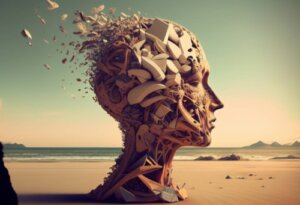The Most Effective Therapies for Emotional Dependence


Written and verified by the psychologist Valeria Sabater
The most effective therapies for emotional dependence tend to almost always focus on aspects related to attachment. It seems the way of bonding in a relationship is linked to emotional needs and how those early affective dynamics were with our caregivers in childhood.
Overcoming unhealthy dependency requires in-depth work. In fact, it’s common for other underlying problems to also be hidden behind this situation. For example, dependent personality disorder (DPD) and other anxiety disorders.
A successful diagnosis allows for the identification of the best available therapies to address the requirements of those requesting specialized help.
If your happiness depends exclusively on what your partner does or doesn’t do, you’ll experience persistent suffering.
The most effective therapies for emotional dependence
In a happy relationship, there’ll be a basic and healthy substrate of emotional dependence. Indeed, recently, the idea of freeing ourselves from attachments and dependencies to be happy in our relationships has become extremely popular. However, this idea demonstrates a form of individualism that isn’t logical.
After all, we’re emotional beings who are inexorably linked. Therefore, it’s completely understandable to feel a certain dependence on the people we love. It only becomes an issue when one partner exclusively gravitates around the other.
Psychological exhaustion appears when a loved one is used as the only supply of happiness. Then, identity becomes blurred, self-esteem fragments, happiness vanishes, and the relationship becomes suffocating. What can be done in these circumstances? What therapeutic strategies are the most appropriate? Find out here.

1. Attachment-based therapy
One of the most effective treatments for emotional dependency is the attachment-based approach. It’s a model that’s currently producing successful results in therapeutic settings. The reason for this is that it allows the individual to understand and work on aspects such as the possible presence of trauma, their emotional needs, and their way of understanding relationships.
The first step in this therapy is to assess the type of attachment in evidence. Instruments are available such as one described in a study conducted by the University of Copenhagen (Denmark). It’s known as the patient attachment coding system (PACS). It helps to decide which approach is the most appropriate for each individual patient.
The following therapeutic strategies are used to treat emotional dependence:
- Emotion-focused therapy helps the individual build emotionally mature bonds.
- Working on their defenses helps them make contact with their internal narratives, the kinds that cause dysfunctional and unhappy relationship patterns.
- Mentalization-based treatment (MBT) allows them to better understand themselves and others. Moreover, it helps them regulate their emotions and behaviors, by getting to know how their mind works.
Building bonds based on a secure attachment fosters healthier relationships based on trust. In addition, the individual develops greater ability in managing emotional matters.
2. Emotional schema therapy
Emotional schema therapy is an integrative approach. It combines cognitive-behavioral therapy with Gestalt therapy and psychoanalysis. It facilitates the understanding of maladaptive thought and emotion patterns. This model was developed by psychologist, Jeffrey Young, in the mid-1980s. Today, it’s a widely accepted therapy.
The International Journal of Cognitive Therapy highlights the usefulness of this therapy when it comes to managing the conflicting emotions that sustain many everyday problems. It’s one of the most effective treatments for emotional dependence. It works as follows:
- Integrates improved emotional self-awareness.
- Turns off self-destructive relational behaviors.
- Helps the individual develop self-compassion and self-validation skills.
- Helps them learn to satisfy their own emotional needs.
- Treats dependent personality disorder (DPD).
- Enhances the responsibility and independence of the individual.
- Makes it possible to detect thought schemas inherited from childhood that make it difficult for them to develop healthy relationships.
- Allows them to understand that it’s not possible to base a relationship on waiting for their partner to satisfy all their needs. They learn that, in order to have good emotional health, they must deactivate their dysfunctional mental schemas and replace them with empowering kinds. For example “I’m responsible for myself, so I’m going to make sure I validate and take care of myself “.

3. Cognitive behavioral therapy
The anatomy of emotional dependence hides, in its foundations, multiple symptoms and comorbid problems. Research conducted by Eafit University (Colombia indicates that many patients with this relational pattern exhibit anxiety, depression, and impulsive behavior, for example.
This leads to another of the most effective treatments for emotional dependency: cognitive behavioral therapy. An article published in the journal, Frontiers in Psychology claims that this therapy is the most frequently used gold standard technique for treating many mental problems and disorders. It’s also the model with the greatest scientific endorsement. In treating emotional dependency, this therapy:
- Strengthens self-esteem.
- Works on negative internal dialogue.
- Neutralizes defense mechanisms and self-criticism.
- Promotes the development of social and emotional skills.
- Treats depression, trauma, and anxiety disorders.
- Helps the individual develop self-care and personal responsibility skills.
- Guides them in understanding how to build healthier relationships.
- Engages them in more enriching and satisfying habits and behaviors.
- Offers them tools for change, via the deactivation of dysfunctional mental patterns.
Everyone needs love to grow, prosper, and be happy. But, escaping from emotional dependence isn’t easy. In fact, it’s a good idea to stay somewhere in between; needing the affection of others, but being our own best suppliers of love and validation.
Releasing excessive emotional dependence
No one can live solely on self-love. Your well-being doesn’t depend only on the validation and affection you give to yourself. To feel fulfilled and happy, you also need the love and affection of others. However, this means you often fall into the suffocating trap of emotional dependence and its slow self-destruction.
Therefore, you must try to stay in the middle ground; enjoying the emotional reinforcements of your loved ones without turning them into your only existential supply of love. Happiness means seeing yourself as a valuable and free being. So, although you enjoy being in a relationship, you also delight in your own independence.
All cited sources were thoroughly reviewed by our team to ensure their quality, reliability, currency, and validity. The bibliography of this article was considered reliable and of academic or scientific accuracy.
- David, D., Cristea, I., & Hofmann, S. G. (2018). Why Cognitive Behavioral Therapy Is the Current Gold Standard of Psychotherapy. Frontiers in psychiatry, 9, 4. https://www.ncbi.nlm.nih.gov/pmc/articles/PMC5797481/
- Leahy, R.L. (2019). Introduction: Emotional Schemas and Emotional Schema Therapy. International Journal of Cognitive Therapy,
- 12, 1–4. https://link.springer.com/article/10.1007/s41811-018-0038-5
- Lemos, M., Vásquez, A. M., & Román-Calderón, J. P. (2019). Potential Therapeutic Targets in People with Emotional Dependency. International journal of psychological research, 12(1), 18–27. https://www.ncbi.nlm.nih.gov/pmc/articles/PMC7110170/
- Talia, A., Taubner, S., & Miller-Bottome, M. (2019). Advances in research on attachment-related psychotherapy processes: seven teaching points for trainees and supervisors. Research in psychotherapy (Milano), 22(3), 405. https://www.ncbi.nlm.nih.gov/pmc/articles/PMC7451314/
- Talia, A., Miller-Bottome, M., & Daniel, S. I. (2017). Assessing Attachment in Psychotherapy: Validation of the Patient Attachment Coding System (PACS). Clinical psychology & psychotherapy, 24(1), 149–161. https://pubmed.ncbi.nlm.nih.gov/26596847/
This text is provided for informational purposes only and does not replace consultation with a professional. If in doubt, consult your specialist.








